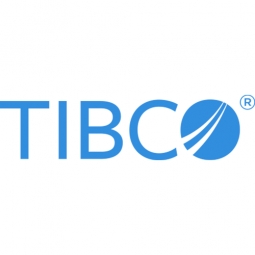Download PDF
University of Iowa Hospitals and Clinics Transforms the O.R.
Technology Category
- Analytics & Modeling - Predictive Analytics
- Analytics & Modeling - Real Time Analytics
- Application Infrastructure & Middleware - Data Exchange & Integration
Applicable Industries
- Healthcare & Hospitals
Applicable Functions
- Quality Assurance
- Business Operation
Use Cases
- Predictive Maintenance
- Remote Patient Monitoring
- Clinical Image Analysis
Services
- Software Design & Engineering Services
- System Integration
The Challenge
In the United States, roughly one in 20 patients admitted to a hospital develops an infection, with surgical site infections being the most common. These infections account for more than 30 percent of occurrences, leading to illness, prolonged hospitalization, and even death. The total cost of hospital-acquired infections is estimated at $10 billion per year. Surgeons at the University of Iowa Hospitals and Clinics wanted to know when patients were susceptible to surgical infections to make critical treatment decisions in the operating room. Dr. John Cromwell believed that predictive analytics could prevent a high percentage of surgical site infections and decrease healthcare costs. However, the division’s desktop analytics environment could not handle large distributed data volumes, posing a major roadblock.
About The Customer
The University of Iowa Hospitals and Clinics is one of the most highly regarded medical facilities in the United States. It is known for its advanced medical care and research capabilities. The hospital is committed to improving patient outcomes and reducing healthcare costs through innovative solutions. Dr. John Cromwell, the director of gastrointestinal, minimally invasive, and bariatric surgery, leads a team dedicated to leveraging predictive analytics to enhance patient care. The hospital's senior application developer, Jose Maria Monestina, plays a crucial role in implementing advanced analytics technologies to support the hospital's mission.
The Solution
To address the challenge, the team needed a flexible, enterprise-grade, advanced analytics platform that encompassed the entire analytics lifecycle. They implemented TIBCO Statistica technology to predict outcomes for Dr. Cromwell’s team. This platform allowed them to connect to disparate enterprise systems and bring the data into a common data set with embedded analytical tools. By moving from desktop to enterprise analytics, they turned prediction theory into a life-enhancing reality in the operating room. The team used patient healthcare data, historical data, and real-time data to create predictive models. This combination allowed them to deliver predictive analytics in a real-time environment, improving healthcare outcomes. The Statistica tools enabled them to manage the ever-increasing types of data that healthcare institutions are tasked with, keeping track of various models needed for predictive analytics.
Operational Impact
Quantitative Benefit
Related Case Studies.

Case Study
Hospital Inventory Management
The hospital supply chain team is responsible for ensuring that the right medical supplies are readily available to clinicians when and where needed, and to do so in the most efficient manner possible. However, many of the systems and processes in use at the cancer center for supply chain management were not best suited to support these goals. Barcoding technology, a commonly used method for inventory management of medical supplies, is labor intensive, time consuming, does not provide real-time visibility into inventory levels and can be prone to error. Consequently, the lack of accurate and real-time visibility into inventory levels across multiple supply rooms in multiple hospital facilities creates additional inefficiency in the system causing over-ordering, hoarding, and wasted supplies. Other sources of waste and cost were also identified as candidates for improvement. Existing systems and processes did not provide adequate security for high-cost inventory within the hospital, which was another driver of cost. A lack of visibility into expiration dates for supplies resulted in supplies being wasted due to past expiry dates. Storage of supplies was also a key consideration given the location of the cancer center’s facilities in a dense urban setting, where space is always at a premium. In order to address the challenges outlined above, the hospital sought a solution that would provide real-time inventory information with high levels of accuracy, reduce the level of manual effort required and enable data driven decision making to ensure that the right supplies were readily available to clinicians in the right location at the right time.

Case Study
Gas Pipeline Monitoring System for Hospitals
This system integrator focuses on providing centralized gas pipeline monitoring systems for hospitals. The service they provide makes it possible for hospitals to reduce both maintenance and labor costs. Since hospitals may not have an existing network suitable for this type of system, GPRS communication provides an easy and ready-to-use solution for remote, distributed monitoring systems System Requirements - GPRS communication - Seamless connection with SCADA software - Simple, front-end control capability - Expandable I/O channels - Combine AI, DI, and DO channels

Case Study
Driving Digital Transformations for Vitro Diagnostic Medical Devices
Diagnostic devices play a vital role in helping to improve healthcare delivery. In fact, an estimated 60 percent of the world’s medical decisions are made with support from in vitrodiagnostics (IVD) solutions, such as those provided by Roche Diagnostics, an industry leader. As the demand for medical diagnostic services grows rapidly in hospitals and clinics across China, so does the market for IVD solutions. In addition, the typically high cost of these diagnostic devices means that comprehensive post-sales services are needed. Wanteed to improve three portions of thr IVD:1. Remotely monitor and manage IVD devices as fixed assets.2. Optimizing device availability with predictive maintenance.3. Recommending the best IVD solution for a customer’s needs.

Case Study
HaemoCloud Global Blood Management System
1) Deliver a connected digital product system to protect and increase the differentiated value of Haemonetics blood and plasma solutions. 2) Improve patient outcomes by increasing the efficiency of blood supply flows. 3) Navigate and satisfy a complex web of global regulatory compliance requirements. 4) Reduce costly and labor-intensive maintenance procedures.

Case Study
Harnessing real-time data to give a holistic picture of patient health
Every day, vast quantities of data are collected about patients as they pass through health service organizations—from operational data such as treatment history and medications to physiological data captured by medical devices. The insights hidden within this treasure trove of data can be used to support more personalized treatments, more accurate diagnosis and more advanced preparative care. But since the information is generated faster than most organizations can consume it, unlocking the power of this big data can be a struggle. This type of predictive approach not only improves patient care—it also helps to reduce costs, because in the healthcare industry, prevention is almost always more cost-effective than treatment. However, collecting, analyzing and presenting these data-streams in a way that clinicians can easily understand can pose a significant technical challenge.






